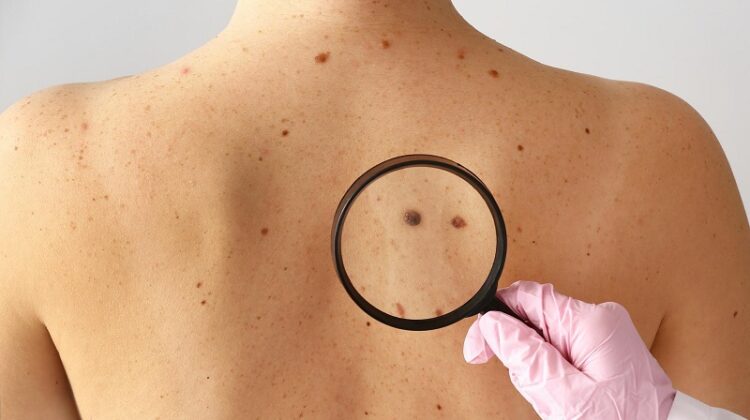
In a groundbreaking development, artificial intelligence (AI) is now empowering individuals to detect potential skin cancers using their smartphones. This innovation comes as skin cancer rates continue to rise, especially among younger adults.
Can AI App Detect Cancer?
- AI-powered smartphone app now detects potential skin cancers, encouraging earlier medical consultations.
- Skin cancer rates are rising globally, particularly among young adults, highlighting the need for improved detection methods.
- A recent study shows AI assistance increases doctors’ skin cancer detection accuracy from 74.8% to 81.1%
Early Detection at Your Fingertips
Bupa, a leading global health insurance provider, has launched a revolutionary service in Spain through its digital platform, Blua. This new tool allows users to perform skin assessments at home using their smartphone cameras.
Dr. Elena Rodriguez, Chief Medical Officer at Bupa Spain, explains, “Our AI-powered app compares user-uploaded photos with millions of skin lesion images. It can identify over 300 skin conditions, including potential cancers.”
If the system detects a concerning issue, it immediately advises users to consult a doctor. “This technology isn’t meant to replace medical professionals,” Dr. Rodriguez emphasizes. “Instead, it encourages people to seek timely medical attention when needed.”
Rising Cancer Rates Spark Concern
The launch of this service comes at a critical time. Recent studies show alarming trends in cancer diagnoses:
1. Global cancer rates among under-50s have surged by nearly 80% in the past three decades.
2. Skin cancer incidence has increased by 38% over the last ten years.
3. Spain has seen a consistent 2.4% annual rise in skin cancer cases during this period.
Dr. Mark Thompson, an oncologist at Madrid Central Hospital, notes, “Early detection is crucial in skin cancer treatment. The sooner we catch it, the better the chances of successful treatment.”
AI Enhances Medical Accuracy
A 2024 Stanford Medicine study revealed that AI significantly improves skin cancer detection rates among medical professionals:
Without AI: Doctors accurately identified skin cancers 74.8% of the time.
With AI assistance: Accuracy increased to 81.1%.
Importantly, non-dermatologists saw the most significant improvement when using AI tools.
Breaking Down Barriers to Health Checks
Traditional healthcare models often struggle to encourage regular skin checks. A recent Bupa survey found that only 9% of people would immediately seek professional advice about a suspicious mole.
However, the same survey revealed a striking shift: 33% of respondents said they would use an AI-powered app for immediate mole assessment if available.
Sarah Jenkins, a health tech analyst, comments, “This dramatic increase shows how technology can drive positive health behaviors. It’s about making healthcare more accessible and less intimidating.”
The Future of Preventive Care
As AI technology evolves, experts predict it will play an increasingly vital role in preventive healthcare.
“The combination of AI and smartphone accessibility is a game-changer,” says Dr. John Lee, a digital health researcher. “It has the potential to detect skin cancers earlier, ultimately saving lives by prompting timely medical interventions.”
While these AI tools show immense promise, health professionals stress that they should complement, not replace, regular check-ups with healthcare providers.
As more people embrace these technologies, the hope is for earlier cancer detection and improved survival rates. The message is clear: your smartphone could be your first line of defense when it comes to skin health.

Leave a Reply